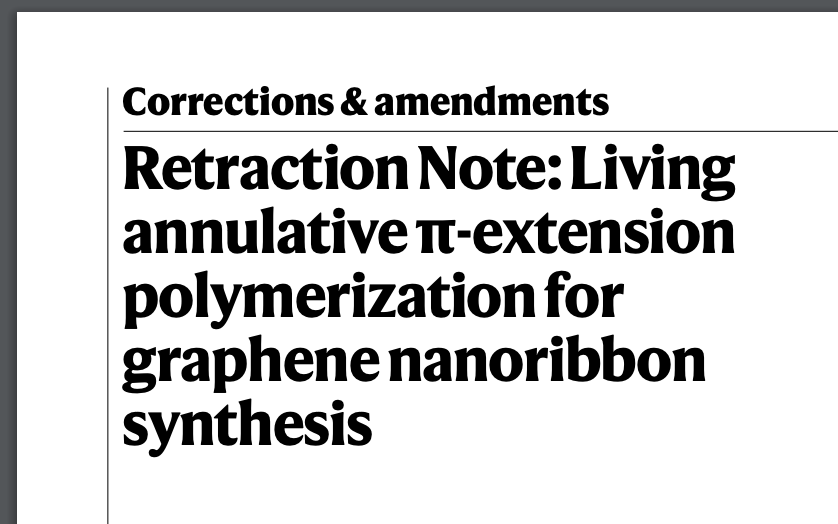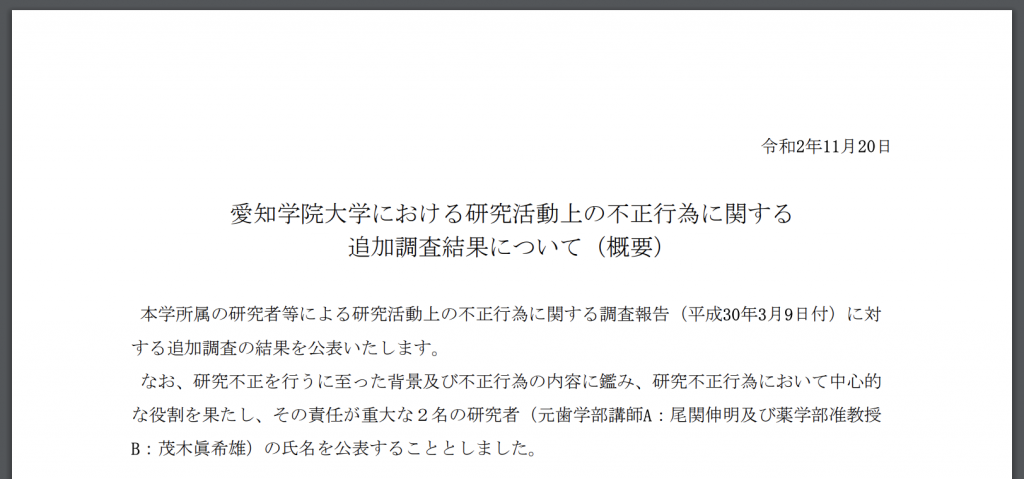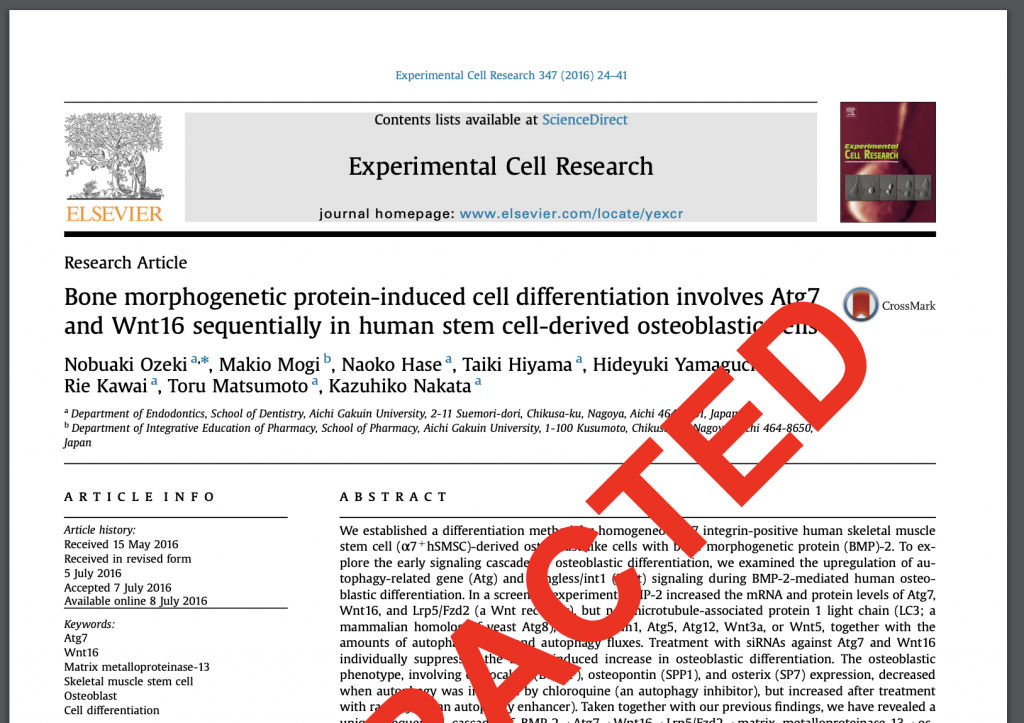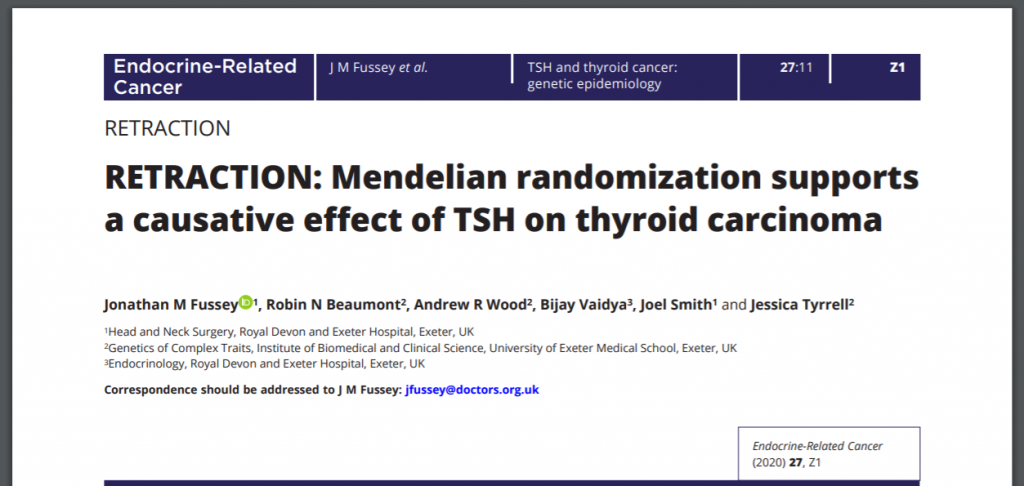
An investigation into the work of a researcher at Western University “resulted in a clear determination of research misconduct,” according to a retraction notice, but details are scant.
Here’s the notice for “Synthetic peptides derived from salivary proteins and the control of surface charge densities of dental surfaces improve the inhibition of dental calculus formation,” published in Materials Science and Engineering: C in 2017 by Bernd Grohe:
Continue reading Western University materials scientist committed misconduct, according to investigation







